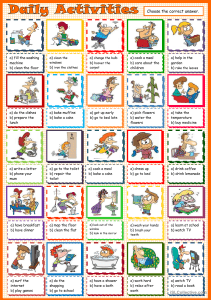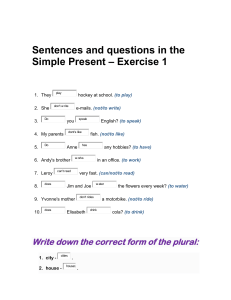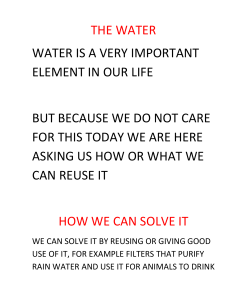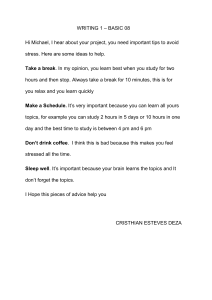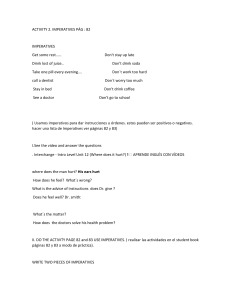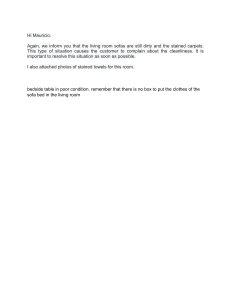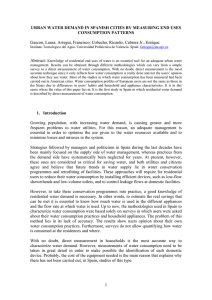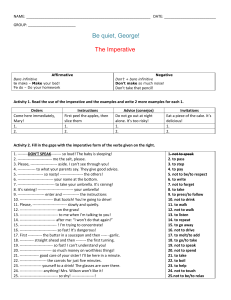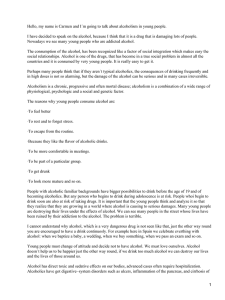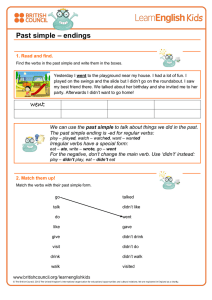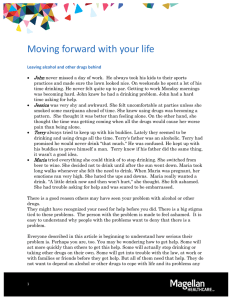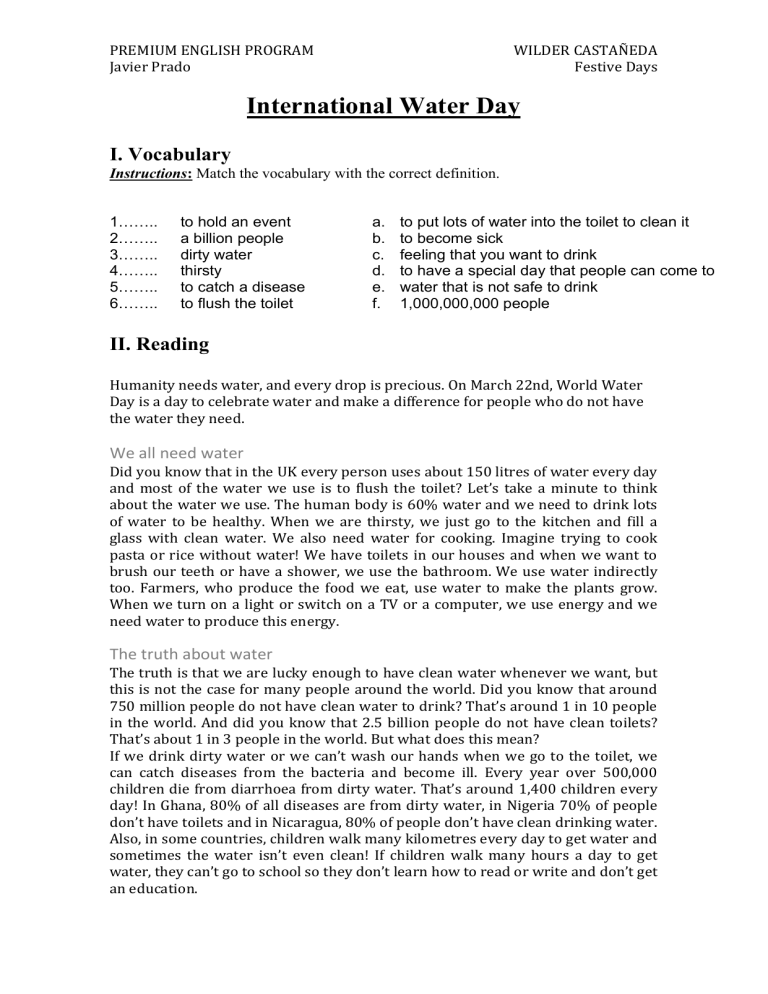
PREMIUM ENGLISH PROGRAM Javier Prado WILDER CASTAÑEDA Festive Days International Water Day I. Vocabulary Instructions: Match the vocabulary with the correct definition. 1…….. 2…….. 3…….. 4…….. 5…….. 6…….. to hold an event a billion people dirty water thirsty to catch a disease to flush the toilet a. b. c. d. e. f. to put lots of water into the toilet to clean it to become sick feeling that you want to drink to have a special day that people can come to water that is not safe to drink 1,000,000,000 people II. Reading Humanity needs water, and every drop is precious. On March 22nd, World Water Day is a day to celebrate water and make a difference for people who do not have the water they need. We all need water Did you know that in the UK every person uses about 150 litres of water every day and most of the water we use is to flush the toilet? Let’s take a minute to think about the water we use. The human body is 60% water and we need to drink lots of water to be healthy. When we are thirsty, we just go to the kitchen and fill a glass with clean water. We also need water for cooking. Imagine trying to cook pasta or rice without water! We have toilets in our houses and when we want to brush our teeth or have a shower, we use the bathroom. We use water indirectly too. Farmers, who produce the food we eat, use water to make the plants grow. When we turn on a light or switch on a TV or a computer, we use energy and we need water to produce this energy. The truth about water The truth is that we are lucky enough to have clean water whenever we want, but this is not the case for many people around the world. Did you know that around 750 million people do not have clean water to drink? That’s around 1 in 10 people in the world. And did you know that 2.5 billion people do not have clean toilets? That’s about 1 in 3 people in the world. But what does this mean? If we drink dirty water or we can’t wash our hands when we go to the toilet, we can catch diseases from the bacteria and become ill. Every year over 500,000 children die from diarrhoea from dirty water. That’s around 1,400 children every day! In Ghana, 80% of all diseases are from dirty water, in Nigeria 70% of people don’t have toilets and in Nicaragua, 80% of people don’t have clean drinking water. Also, in some countries, children walk many kilometres every day to get water and sometimes the water isn’t even clean! If children walk many hours a day to get water, they can’t go to school so they don’t learn how to read or write and don’t get an education. PREMIUM ENGLISH PROGRAM Javier Prado WILDER CASTAÑEDA Festive Days Water for everyone In 1993 the United Nations decided that March 22nd is the World Day for Water. On this day every year, countries around the world hold events to educate people about the problems of dirty water and that clean water is something that everyone should have around the world. People organise events to raise money and this money helps countries like Nigeria or Nicaragua get clean water to its people so that children don’t die from diarrhoea and so that they can go to school. For World Water Day, some people in the UK walk, run or cycle 10km, others climb mountains or even jump from an aeroplane and skydive to the ground. At one school children between the ages of 10 and 15 walk 6km with 6 litres of water so they can see how it feels to walk a long distance carrying heavy bottles of water. People give them money to do these things and all the money helps get clean water to as many people as possible around the world. III. Grouping Instructions: Write the phrases in the correct groups. a. grow food. f. walk many km every day to look for water. b. can’t wash their c. cook. hands. g. flush the toilet. h. brush our teeth. We use water to… d. make energy. i. don’t have toilets. When there isn’t any water, people… IV. DISCUSS e. can’t go to school. j. die from diarrhoea. What do you think are the most important things we use water for? Did anything in the article surprise you? What can you do to save water?
